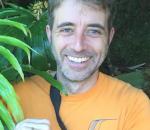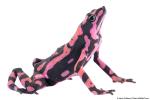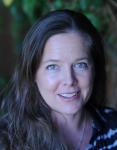Congratulations to IB Professor Rasmus Nielsen, who has been elected to the National Academy of Sciences.
Submitted by rhkayen on Fri, 05/13/2022 - 14:57Congratulations to IB Professor Rasmus Nielsen, who has been elected to the National Academy of Sciences.
Congratulations to Carl J. Rothfels, one of this years recipients of the Distinguished Graduate Student Mentoring Award
Submitted by rhkayen on Mon, 04/11/2022 - 13:33Carol D. Soc Distinguished Graduate Student Mentoring Awards, established in 2007, recognize UC Berkeley faculty for their vital role in mentoring graduate students and training future faculty. The awards are funded by the Graduate Division and seek to foster the qualities of excellence in mentorship that are so important to the Berkeley community. The winners are honored annually at an awards ceremony jointly sponsored by the Graduate Assembly and the Graduate Division.
BIG GIVE 2022 INTEGRATIVE BIOLOGY GRADUATE STUDENT SUPPORT FUND
Submitted by rhkayen on Thu, 03/10/2022 - 11:19TODAY'S THE DAY! Big Give, the UC Berkeley community's annual opportunity to give back to the departments and programs closest to their hearts.
Summer Undergraduate Research Experience (SURE)
Submitted by rhkayen on Tue, 03/01/2022 - 13:09The Integrative Biology Summer Undergraduate Research Experience (SURE) is intended to support scholars who demonstrate passion to engage in original, hands-on research and explore graduate school opportunities with IB faculty. The IB SURE is built around three pillars: (1) a sense of community among scholars; (2) engagement with original research; and (3) mentorship.
SURE participants have the opportunity to:
Some birds sing the same song for hundreds of thousands of years
Submitted by rhkayen on Mon, 02/14/2022 - 12:37Many of the birds that awaken us each morning learn their melodious songs the same way that humans learn a dialect — from parents and neighbors.
Losing amphibian diversity also means losing poison diversity
Submitted by rhkayen on Fri, 02/04/2022 - 08:42While frog and salamander declines worldwide have made scientists outspoken about the need to preserve amphibian genetic diversity, two University of California, Berkeley, biologists emphasize another important reason for conserving these animals: their poisons.
Congratulations to Mike Boots on being elected a AAAS fellow!
Submitted by rhkayen on Sun, 01/30/2022 - 09:48Ten members of the UC Berkeley community – including nine faculty and one staff member — have been elected American Association for the Advancement of Science (AAAS) fellows, one of the most distinctive honors within the scientific community. The 2021 class of AAAS fellows includes 564 scientists, engineers and innovators who are being recognized for their scientifically and socially distinguished achievements.
Congratulations to Britt Koskella on being named one of this years new CZ Biohub Investigators!
Submitted by rhkayen on Wed, 01/12/2022 - 15:22The Chan Zuckerberg Biohub announced today (Jan. 11) the second cohort of scientists to be named CZ Biohub Investigators, 21 of whom are UC Berkeley faculty members.
Some birds sing the same song for hundreds of thousands of years
Submitted by rhkayen on Wed, 01/12/2022 - 15:04A new study by biologists from the University of California, Berkeley, and Missouri State University in Springfield, however, documents songs in East African sunbirds that have remained nearly unchanged for more than 500,000 years, and perhaps for as long as 1 million years, making the songs nearly indistinguishable from those of relatives from which they’ve long been separated.








